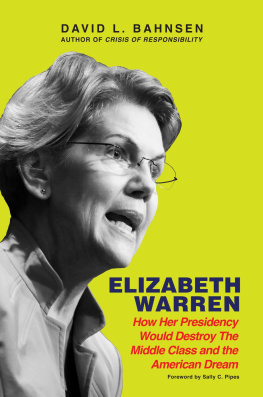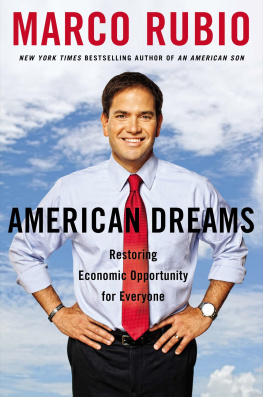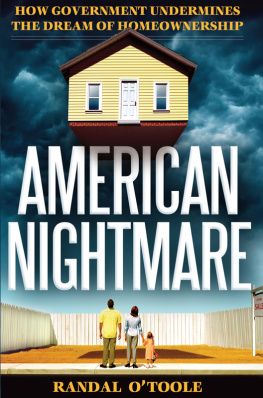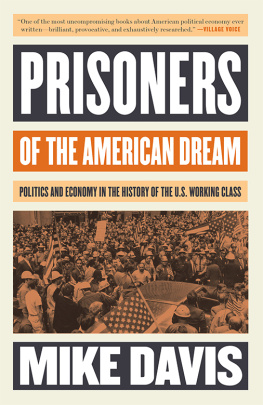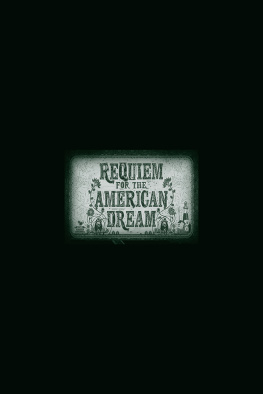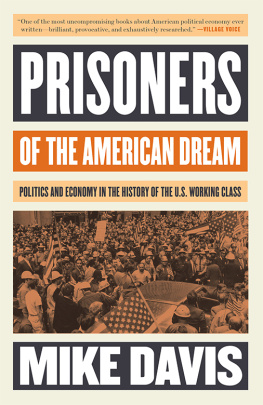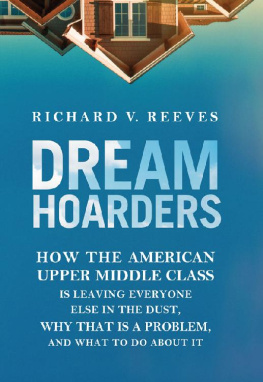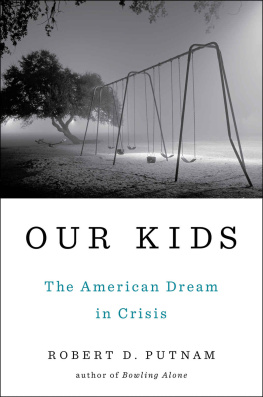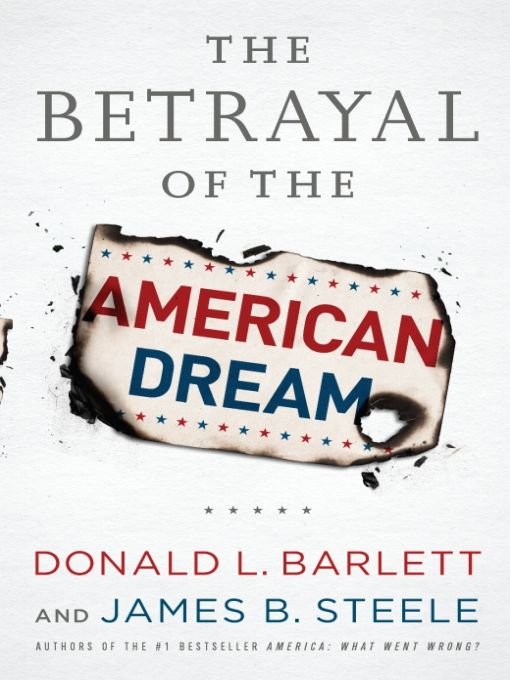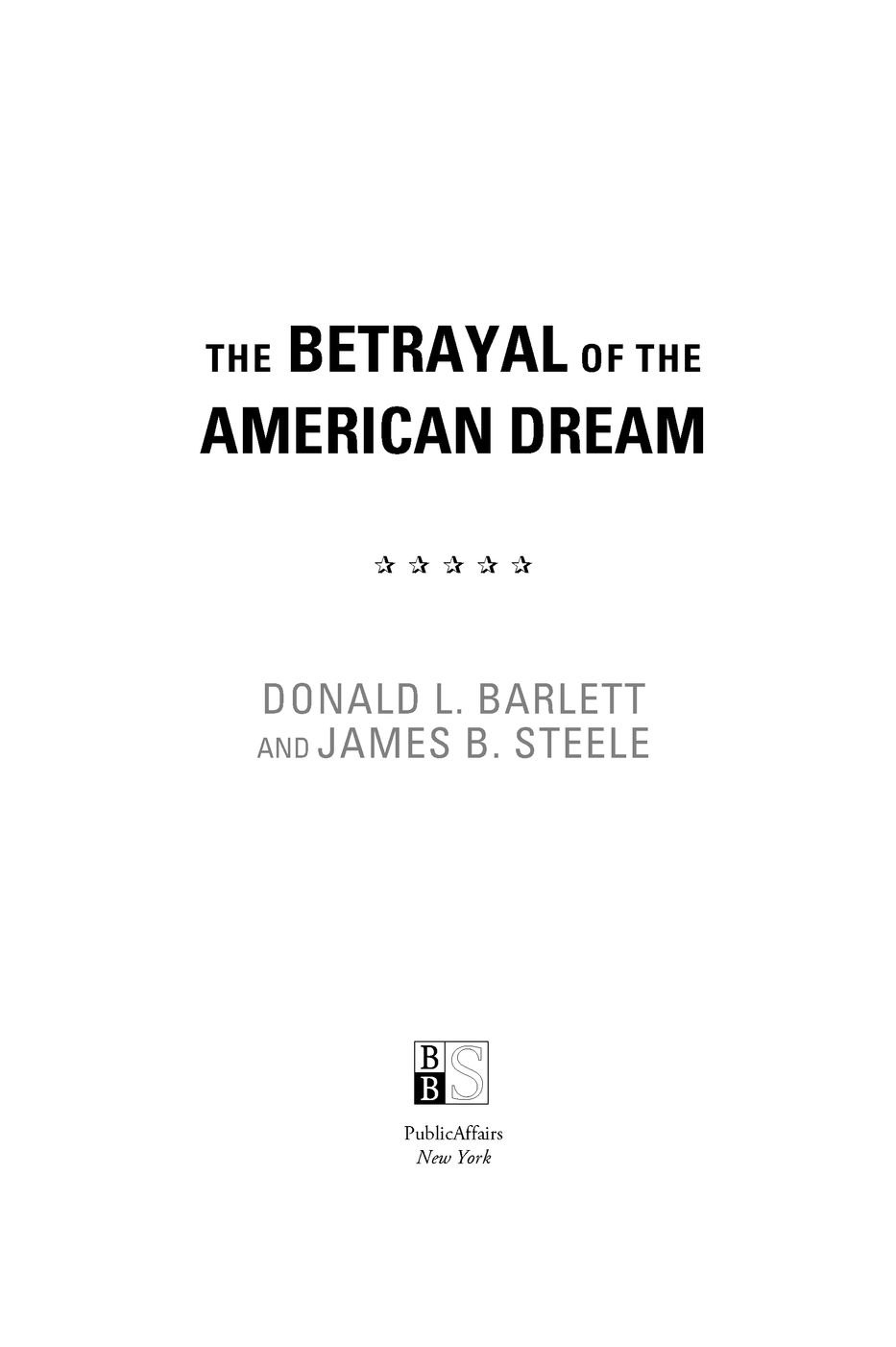Table of Contents
ALSO BY
Donald L. Barlett and James B. Steele:
Critical Condition: How Health Care in
America Became Big Businessand Bad Medicine
The Great American Tax Dodge
America: Who Stole the Dream?
America: Who Really Pays the Taxes?
America: What Went Wrong?
Forevermore: Nuclear Waste in America
Howard Hughes: His Life and Madness
TO THE MEMORY OF JOY WHITEHOUSE
PROLOGUE
The Betrayal of the American Dream is the story of how a small number of people in power have deliberately put in place policies that have enriched themselves while cutting the ground out from underneath Americas greatest assetits middle class.
Their actions, going back more than three decades, have relegated untold numbers of American men and women to the economic scrap heapto lives of reduced earnings, chronic job insecurity, and a retirement with fewer and fewer benefits. Millions have lost their jobs. Others have lost their homes. Nearly all face an uncertain future. Astonishingly, this has been carried out in what is considered the worlds greatest democracy, where the will of the people is supposed to prevail. It no longer does. America is now ruled by the fewthe wealthy and the powerful who have become this countrys ruling class.
This book tells how this has happened, who engineered the policies that are crippling the middle class, what the consequences will be if we fail to reverse course, and what must be done to restore the promise of the American dream.
We have been reporting and writing about middle-class America for many years. In our 1992 book
America: What Went Wrong? we told the stories of people who were victims of an epidemic of corporate takeovers and buyouts in the 1980s. We warned that by squeezing the middle class, the nation was heading toward a two-class society dramatically imbalanced in favor of the wealthy. At the time, the plight of middle-class Americans victimized by corporate excess was dismissed by economists as nothing more than the result of a dynamic market economy in which some people lose jobs while others move into new jobscreative destruction, it was called. Soon, they said, the economy would create new opportunities and new jobs. We said,
Dont believe it. What happened to the middle class in the 1980s and early 1990s wasnt just a blip, but part of a disturbing pattern: a shift by Washington away from policies that had built the American middle class and enabled successive generations to do better than their parents, in favor of policies that catered to Wall Street, corporate chieftains, and Americas wealthiest citizens. We wrote:
Popular wisdom has it that the worst has passed, that it was all an aberration called the 1980s. Popular wisdom is wrong. The declining fortunes of the middle class that began with the restructuring craze will continue through this decade and beyond.
Because of statements like that, we were accused of being alarmists. But in fact we grossly underestimated how much more difficult life would become for most Americans. The workers we wrote about in the 1990s were pioneers of a sort never before seen in the United States. Unlike middle-class Americans for more than three generations before them, for whom life progressively got better, they were heading down the economic ladder. They were the first substantial wave of what will be tens of millions of casualtiesmost likely well over 100 millionas Wall Street and the moneyed interests proceed unchecked to dismantle the structure that has sustained Americas middle class, all with the assistance and blessing of Congress. The country that once offered so much to its peoplelike the GI Bill, which put millions of Americans through collegehas begun to eat its own.
In this book, we describe areas where government action or indifference has taken its harshest toll. Some of the examples we dwell on, such as the deplorable working conditions in Apples Chinese plants, may seem familiar. But their context and wider consequences are often overlooked. Apple is Americas most profitable corporation. It is a signature innovator in a fieldtechnologythat has for years been said to hold the promise of lucrative and long-term employment. Yet this innovative company has left most of its American workers behind. If the United States is unable to retain the benefits of a successful company like Apple and its potential to provide huge numbers of good jobs in this country for years to come, what does that say about our ability to encourage future innovators and provide employment here at home? Apples phenomenal business success has benefited only a small share of the population, unlike some of our great corporations in the past that provided a solid middle-class living for generations of working Americans while also rewarding stockholders with handsome dividends. For its part, Apple decided to take the money and run. It is by no means alone, just the most visible. In fact, between 1999 and 2008, according to Tax Notes, the definitive tax publication, foreign affiliates of U.S. parent corporations increased their employment abroad by 2.4 million jobs, or 30 percent. During the same period, they slashed their employment in the United States by 1.9 million. If our largest and most successful corporations are no longer working for the shared benefit of American workers, then what is the future of the middle class?
The skewing of the tax code in favor of the rich is a subject we have written about for years. In this book, we tabulate the unprecedented riches the preferential tax law provisions have showered on the wealthy, and we explain why they will hollow out the middle class for years to come. The well-being of the majority of Americans is also coming under assault from U.S. policies having to do with trade, regulations, and benefits. In each of these areas, we address the broader context, drawing on decades of our own research and observations. It is the cumulative impact that has been so detrimental to the middle class. Yet most of the media cover these stories as if they were isolated events, devoid of a larger significance or pattern. Unfortunately, the significance is stark.
At a time when the federal government should be supporting its citizens by providing them with the tools to survive in a global economy, the government has abandoned them. It is exactly what members of the ruling class want. The last thing they want is an activist governmenta government that behaves, lets say, the way Chinas does. Their attitude is let the market sort it out. The market has been sorting, and it has tossed millions out of good-paying jobs. Now that same ruling class and its cheerleaders in Congress are pushing mightily for a balanced budget at any cost. If it happens, it will be secured mostly by taking more out of the pockets of working people, driving yet another nail into the middle-class coffin.
The economic elite have accomplished this by relentlessly pressing their advantage, an advantage that exists for the simplest of reasons: the rich buy influence. As the divide between them and everyone else has grown since the early 1970s, the wealthy have poured more and more money into lobbying and politics in order to control the agenda. Now the one percent is plowing untold millions into political contributions and lobbying, and every effort to try to reduce the influence of money in politics has been rebuffed. With the Supreme Court



